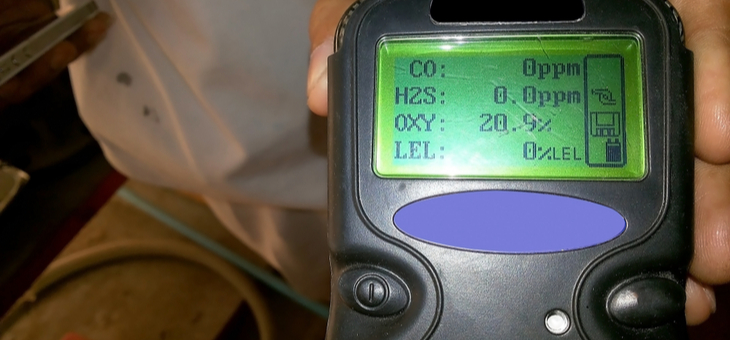Effective ventilation at indoor venues is crucial to stopping the rapid spread of COVID-19 and an inexpensive item from hardware stores may be key to identifying major ventilation risks.
With the news on Monday of tighter restrictions in New South Wales and Victoria, and extended or new lockdowns in several states and territories, experts say it’s time to add another weapon to the COVID arsenal.
In the past few weeks, schools, shopping centres, restaurants and other crowded public buildings have emerged as super-spreader environments, largely due to their combination of high numbers of people and limited space.
It has been well established that COVID-19, and in particular the Delta variant, spreads through airborne particles passed between people. It spreads more easily indoors as the particles become trapped in the air.
Therefore, a building’s ventilation (or lack thereof) can be a reliable indicator of how likely COVID is to spread within its walls. We saw case after case appear in the nation’s hotel quarantine system, as the rooms often shared ventilation and air-conditioning systems.
Read: Why Aussie rapid COVID tests are heading overseas
Regular household carbon monoxide monitors, which can be bought relatively cheaply online or from hardware stores, can be used to identify these problems and allow owners to fix any problems.
Although carbon monoxide has nothing to do with COVID-19, high levels of the gas are a good indicator that ventilation in a building isn’t up to scratch and airflow needs to be improved.
Director of the environmental science hub at the University of Melbourne, Dr Robyn Schofield, says an acceptable concentration of carbon monoxide in the atmosphere indoors pre-pandemic was around 600 to 800 parts per million. So for every million regular air particles, 600 to 800 of them would be carbon monoxide molecules.
She estimates that detecting a level of 850 parts per million inside a building would be cause for concern when it comes to the spread of the Delta variant.
“At above 800 you start to be a bit worried, if it’s above 1000 that’s not good,” Dr Schofield told The Age.
“But if you don’t know the levels are high, you’re flying blind.”
Read: Older Australians may need COVID booster from early next year
Monitoring carbon monoxide levels is now a legal requirement in Belgium for those managing hotels, restaurants, bars and fitness centres, and experts are pushing for its introduction in the US as a way for businesses with appropriate ventilation to remain open.
But authorities here have been reluctant to introduce carbon monoxide monitoring as a requirement.
“Something needs to be done about this,” says Professor Lidia Morawska.
“Because of whatever reason … politicians prefer not to talk about this, but just put their head in the sand. Well, that’s how the outbreaks happen.”
A group of researchers in Melbourne has also shown in a study that portable air cleaners are an effective way to clear a room of aerosol particles.
Read: Warning for shoppers as COVID-19 spreads in supermarkets
Published in the journal Infection Control and Hospital Epidemiology, the study found that 99 per cent of aerosol particles in a room can be cleared within five-and-a-half minutes using portable high-efficiency particulate air (HEPA) filters. The study was carried out in a single ward of a tertiary-care public hospital. The portable units could prove invaluable in curbing the spread of COVID-19 in healthcare settings.
“While the existing hospital heating, ventilation and air-conditioning system did remove aerosols from the clinical space, we found that by adding portable air cleaners to the ward we could significantly reduce the time needed to achieve clearance, and thus likely help to make the space safer for staff,” says study lead Dr Kirsty Buising, from the Victorian Infectious Diseases Service.
Based on the finding, the hospital used in the study now uses portable air cleaners in rooms with COVID-19 patients.
Could this be a way for businesses to prove they’re COVID safe? Would you trust that system to keep you safe? Let us know in the comments section below.
If you enjoy our content, don’t keep it to yourself. Share our free eNews with your friends and encourage them to sign up.

